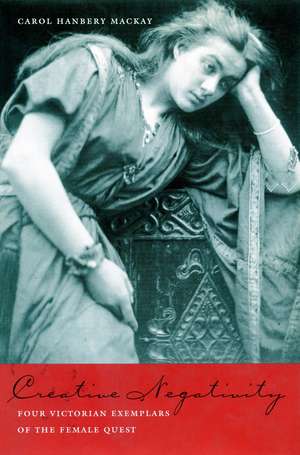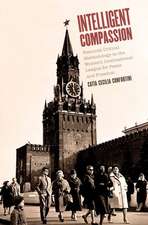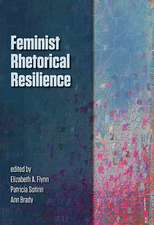Creative Negativity: Four Victorian Exemplars of the Female Quest
Autor Carol MacKayen Limba Engleză Hardback – 31 iul 2002
Focusing on the early Modern and Victorian periods, the author finds covert revolutionaries in four female practitioners of a strategy she calls creative negativity. She opens up for inspection the lives and creative endeavors of poet-photographer Julia Margaret Cameron (1815-1879), novelist-essayist Anne Thackeray Ritchie (1837-1919), activist-spiritual leader Annie Besant (1847-1933), and actress-writer Elizabeth Robins (1862-1952).
Creative negativity grows out of either philosophical or emotional negativity; it evokes a focal point, often a place; it combines reality and illusion; it suggests a shift in magnitude, a sense of multifariousness or zooming out; it includes an altered sense of time by reaching backward, moving outside temporality, or attenuating time; and it evokes self-referentiality, an aesthetic or formal invocation in a work of art, a sense of self-consciousness in social contexts.
As she explores the interacting elements of creative negativity that their work exemplifies, the author demonstrates how the artistic and performative techniques employed by the four women provide them with the rhetorical tools with which they can construct, take apart, and reconstruct themselves. This uniquely interactive response propels the women through their successful enactments of the female quest. Their creative interpretations of their life experiences point up the distinctive ways in which women’s self-expression can be reconceived as a manifestation of the female quest—a voicing of multiple stories and selves, both within themselves and others, in myriad and fantastical domains of their own creation. Overall, this book provides a working model for seeing how a covert feminism operated during a key period of history.
Creative negativity grows out of either philosophical or emotional negativity; it evokes a focal point, often a place; it combines reality and illusion; it suggests a shift in magnitude, a sense of multifariousness or zooming out; it includes an altered sense of time by reaching backward, moving outside temporality, or attenuating time; and it evokes self-referentiality, an aesthetic or formal invocation in a work of art, a sense of self-consciousness in social contexts.
As she explores the interacting elements of creative negativity that their work exemplifies, the author demonstrates how the artistic and performative techniques employed by the four women provide them with the rhetorical tools with which they can construct, take apart, and reconstruct themselves. This uniquely interactive response propels the women through their successful enactments of the female quest. Their creative interpretations of their life experiences point up the distinctive ways in which women’s self-expression can be reconceived as a manifestation of the female quest—a voicing of multiple stories and selves, both within themselves and others, in myriad and fantastical domains of their own creation. Overall, this book provides a working model for seeing how a covert feminism operated during a key period of history.
Preț: 448.67 lei
Preț vechi: 553.91 lei
-19% Nou
Puncte Express: 673
Preț estimativ în valută:
85.86€ • 88.70$ • 71.46£
85.86€ • 88.70$ • 71.46£
Carte tipărită la comandă
Livrare economică 25 martie-08 aprilie
Preluare comenzi: 021 569.72.76
Specificații
ISBN-13: 9780804738293
ISBN-10: 0804738297
Pagini: 304
Dimensiuni: 152 x 229 x 25 mm
Greutate: 0.54 kg
Ediția:1
Editura: Stanford University Press
Colecția Stanford University Press
ISBN-10: 0804738297
Pagini: 304
Dimensiuni: 152 x 229 x 25 mm
Greutate: 0.54 kg
Ediția:1
Editura: Stanford University Press
Colecția Stanford University Press
Recenzii
“Fresh and compelling, this book develops a thesis about female ‘creative negativity’ that will be of great interest to scholars in the fields of Victorian literary culture and women’s studies, performance and drama, and women’s history generally. No other work brings comparable materials together into such a new but entirely natural whole; no one has previously attempted to provide a single workable template for Victorian femal creative activity.” - Joss Marsh, Indiana University
Notă biografică
Carol Hanbery MacKay is Associate Professor of English at the University of Texas at Austin. She is the author of Soliloquy in Nineteenth-Century Fiction: Consciousness Creating Itself.
Textul de pe ultima copertă
“Fresh and compelling, this book develops a thesis about female ‘creative negativity’ that will be of great interest to scholars in the fields of Victorian literary culture and women’s studies, performance and drama, and women’s history generally. No other work brings comparable materials together into such a new but entirely natural whole; no one has previously attempted to provide a single workable template for Victorian femal creative activity.” - Joss Marsh, Indiana University
Descriere
Focusing on the early Modern and Victorian periods, the author finds covert revolutionaries in four familiar practitioners of a strategy she calls creative negativity: poet-photographer Julia Margaret Cameron (1815-1879), novelist-essayist Anne Thackeray Ritchie (1837-1919), activist-spiritual leader Annie Besant (1847-1933), and actress-writer Elizabeth Robins (1862-1952).













